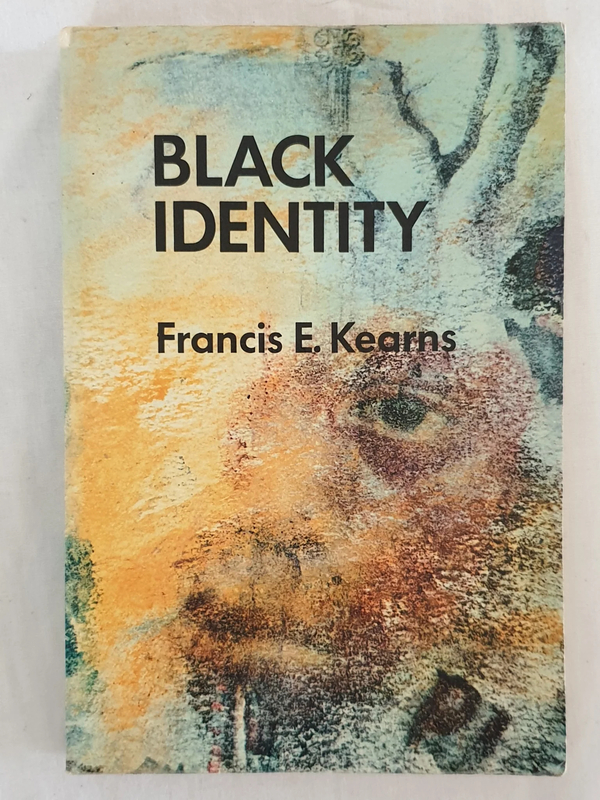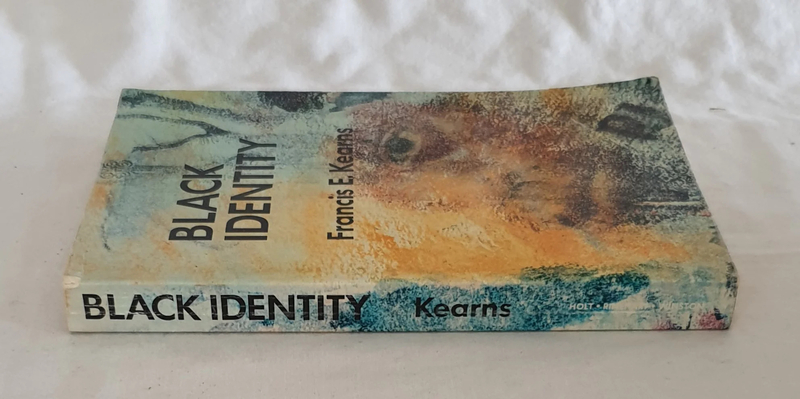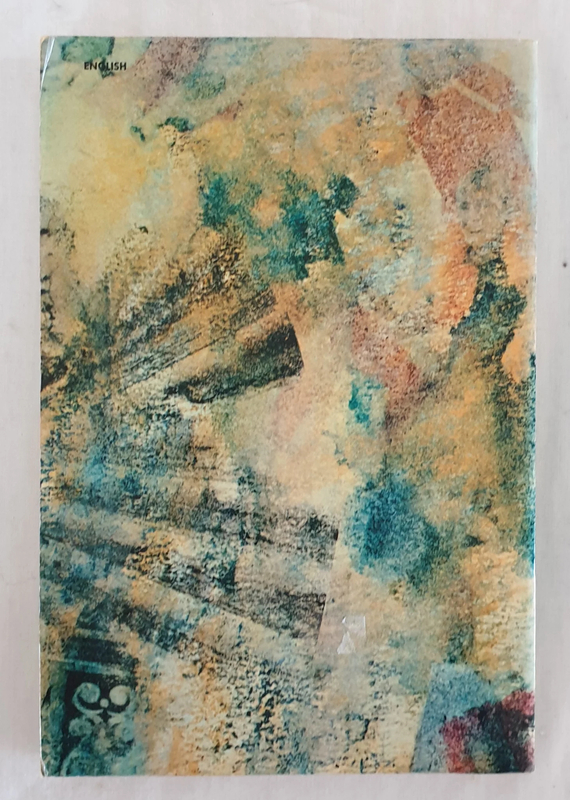Black Identity: A Thematic Reader
Item
-
Title
-
Black Identity: A Thematic Reader
-
This edition
-
"Black Identity: A Thematic Reader". Ed. Francis E. Kearns. New York: Holt, Rinehart and Winston, 1970. xiii+359 pp.
-
Table of contents
-
[Names marked with an asterisk (*) are not African Americans]
• Francis E. Kearns* / Preface
PART ONE :
Chapter One: Heritage
• Richard Wright / Our Strange Birth
• Robert Hayden / Middle Passage
• William John Grayson* / The Hireling and the Slave [excerpt]
• Paul Laurence Dunbar / Chrismus on the Plantation
• Katherine Ann Porter* / The Witness
• Edward Brathwaite* [Barbados] / Prelude
Perspective:
• Charles Hamilton / Our Nat Turner and William Styron's Creation
Chapter Two: We Wear the Mask
• Charles W. Chesnutt / The Goophered Grapevine
• Paul Laurence Dunbar / We Wear the Mask
• Countee Cullen / For Paul Laurence Dunbar
• Stephen Crane* / The Knife
• Gwendolyn Brooks / The White Troops Had Their Orders But the Negroes Looked Like Men
• James Baldwin / Equal in Paris
• Langston Hughes / Dinner Guest: Me
Perspective:
• Eldridge Cleaver / The Muhammad Ali--Patterson Fight (from "Soul on Ice")
Chapter Three: Brutality
• Claude McKay / The Lynching
• Langston Hughes / Silhouette
• Allen Tate* / The Swimmers
• Gwendolyn Brooks / The Chicago Defender Sends a Man to Little Rock, Fall, 1957
Perspective:
• Malcolm X / Nightmare (from "The Autobiography of Malcolm X")
Chapter Four: If We Must Die
• Claude McKay / If We Must Die
• LeRoi Jones / A Contract (For the Destruction and Rebuilding of Paterson)
• Ben Caldwell / The Job
• Gwendolyn Brooks / Malcolm X
• Langston Hughes / Black Panther
• Flannery O'Connor* / Everything That Rises Must Converge
Perspective:
• Frantz Fanon* [Martinique] / Concerning Violence (from "The Wretched of the Earth")
Chapter Five: The Barrier
• Countee Cullen / Song of Praise
• Claude McKay / The Barrier
• Langston Hughes / Mellow
• Charles W. Chesnutt / A Matter of Principle
• John A. Williams / Son in the Afternoon
Perspective:
• John Howard Griffin* / Black Like Me [excerpt]
PART TWO :
• Nat Turner / The Confessions (as reported by Thomas R. Gray)
• W. E. B. DuBois / Of Mr. Booker T. Washington and Others (from "The Souls of Black Folk")
• James Weldon Johnson / O Black and Unknown Bards
• Countee Cullen / Yet Do I Marvel
• Countee Cullen / Simon the Cyrenian Speaks
• Countee Cullen / Mood
• Arna Bontemps / A Black Man Talks of Reaping
• Richard Wright / The Ethics of Living Jim Crow
• Eudora Welty* / Powerhouse
• Margaret Walker / For My People
• Melvin B. Tolson / Dark Symphony
• Ralph Ellison / Flying Home
• Dudley Randall / Booker T. and W.E.B.
• Langston Hughes / Name in Print
• Norman Mailer* / The White Negro: Superficial Reflections on the Hipster
• Ellen Douglas* / Jesse
• Norman Podhoretz* / My Negro Problem--and Ours
• William Melvin Kelley / The Only Man on Liberty Street
-
Anthology editor(s)' discourse
-
"Black identity: a thematic reader is a collection of short stories, poems, a short play, and personal essays written by both blacks and whites, on the themes of Negro experience and identity in America. Intended as a literary approach to a asocial topic, the book also presents essays of social analysis and commentary, but these pieces have only a secondary role to play" (Preface, p. v).
-
Commentary on anthology
-
•Krishnaraj, Darius. "Difficulties and Dead Endings in Teaching African American Literature in Indian Universities." "MELUS" 18.4 (1993): 53-61. JSTOR.
"let me turn to a specific textbook of African American themes and its suitability for Indian students--Francis E. Kearns's 'Black Identity, A Thematic Reader'. This particular book is suggested mainly because of the non-availability of comparable ones in India. Its ample three-hundred sixty pages of selections, covering different genres and including cues for discussion all in one handy-sized volume, is a rare thing in India. The United States Information Service supplied the copies of this book free of cost a few years ago.
" One of the merits of 'Black Identity' is that it is made up of literary creations by both whites and blacks, with more by the latter. If one were to ask in India, as Addison Gayle, Jr., did in his college in order to introduce black literature ('Black Expression' iii), 'Would you like to hear about blacks also from whites?' the answer would be a big 'yes.' Considering the large amount of material in the book, it could be used throughout the six semesters in which a Bachelor of Arts course is completed in India. In fact, it could be put to use even at the Master of Arts degree level. There are 'Topics for General Discussions and Written Reports" provided by the editor. These topics by themselves are interesting and appropriate to the texts. However, most Indian students would find the assignments in 'Black Identity' beyond their reach. For instance, far from adequate information is possessed by students at the undergraduate level to complet assignments such as, 'Discuss the relationship between Christianity and slavery as it appears in these selections.' It must be understood that the percentage of Christian students in classes is negligible, and even these few students are not well educated in their faith. This assertion holds as well for the followers of other religions; the British colonial legacy in this regard is more or less nullified by Indian neo-nationalist aspirations. The students are poorly equipped not only in background knowledge but also in powers of expression and literary discrimination. Another assignment--'Write an essay in which you discuss the question of whether mask-wearing is a unique racial problem or whether it reflects some universal problems of the human condition'--would be even more difficult a proposition for Indian students, because their training is in a highly examination-oriented set-up in which the scope for acquiring general knowledge, literary tastes and awareness of the human condition is very limited. 'Discuss the element of violence' is yet another problematic assignment. One can anticipate many teachers asking in exasperation, 'Isn't there enough violence already through cinema, TV and video; do you want to aggravate the situation through textbooks?' Certainly, India in the recent past has become what in Hamletian terms might be described as a 'garden gone to seed' or 'a foul and pestilent congregation of vapours.'
"In trying to sum up the obstacles in the teaching of African American literature in Indian universities--which are riddled with financial constraints, feckless and corrupt management, and fanaticism of religion and language--and in assessing a multi-genre textbook for pedagogical purposes, I seem to be arriving at an anticlimactic point. Having come to the end of this hurried excursion into the tiresome terrain of Indian universities, it is clear that I have been weighing of the extrinsic factors than the intrinsic value of African American literature. However, I do not see this as a fruitless excursion, for my belief is that breaking barriers and not succumbing to 'dead ends' is, after all, the business of literature" (59-61).
-
JSTOR
-
See also
-
• About the editor: Francis E. Kearns (1932-2018), was born in Brooklyn, one of four children of George and Gertrude; he graduated from NYU and then received a Master's from the University of Chicago and a PhD from the University of North Carolina, where he met his future wife, Ann. "Frank served in the CIA early in the Cold War, and began a long academic career at Georgetown, where he quickly ran into conflict with the administration for his support of the Civil Rights movement during the period leading up to the March on Washington. He spent the remainder of his academic career with the City University of New York’s Lehman College, where he became chair of the English department. His field was American literature, with specialties in Margaret Fuller and other transcendentalist writers and African-American authors. His proudest academic achievements were the successes of his students from poor backgrounds similar to his own, and teaching American literature to foreign students in Norway, France, and Hungary" (obituary, Clark Associates Funeral Home, Katonah, NY).
-
Obituary
-
Item Number
-
A0591





